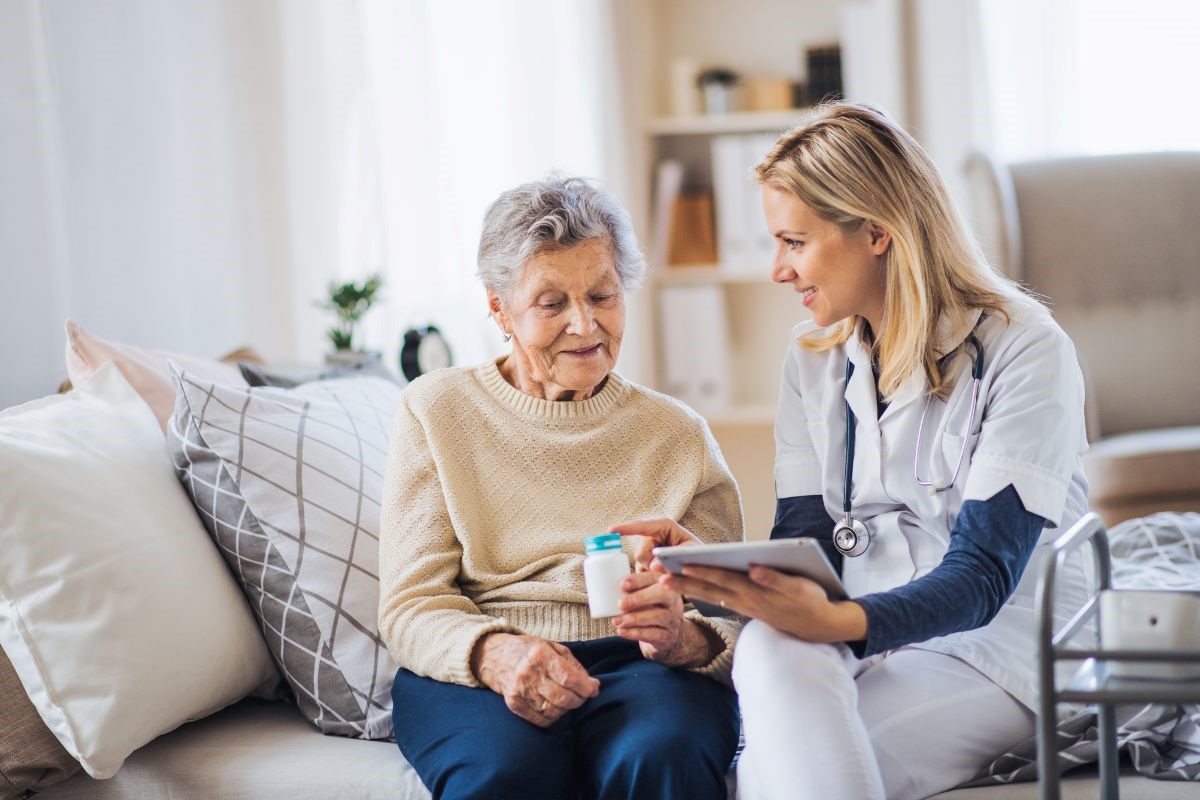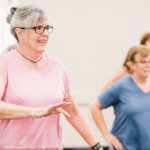Top Tips for Caring for Seniors
Here are some useful tips for caring for seniors. As people get older, their needs and wants change. Seeing someone becoming weaker in body or mind can be worrying, but there are many things we can do to help them stay healthy and age well.
Here are some important tips to help your elderly relatives stay healthy and happy:
Focus on Physical Activity
- Get into the habit: It’s important to exercise regularly to stay healthy both physically and mentally. Try to move your body more every day, even if it’s just taking short walks or doing gentle stretches. Discover things they like to do, such as gardening, dancing, or exercising in the water.
- Strength Matters: Strength is important. Do exercises that make your muscles and bones strong. Doing easy exercises without equipment or with light weights can have a big impact.
- Balance is Key: Keeping a balance in your body is very important. Doing exercises to improve your balance can help older people from falling down.
- Put safety first: Talk to a doctor before starting a new exercise program, especially if your loved one has any health problems. Get help from a physical therapist to make a workout plan that is safe and works well.
Fueling the Body
- Eat for Health: Eating healthy food is very important for our health. Eat lots of fruits, veggies, whole grains, lean meats, and good fats.
- Hydration is Key: Many older people often have dehydration. Encourage them to drink water during the day, even if they are not thirsty.
- Mindful Eating: Eat food that is good for you and be aware of how much you are eating. Avoid eating a lot of sugary and fatty processed foods.
- Cook Together: Let’s cook and eat together as a fun thing to do with friends or family. Making healthy food with someone can be a fun way to strengthen your relationship and make sure you’re eating the right stuff.
Helpful Tips for Caring for Seniors
Caring for seniors requires compassion, patience, and attention to detail. Here are some top tips to ensure they receive the best care possible:
- Establish Clear Communication: Communication is key to understanding the needs and preferences of seniors. Take the time to listen actively and encourage open dialogue. This helps build trust and ensures that their concerns are addressed effectively.
- Ensure Safety at Home: Create a safe living environment by removing hazards such as loose rugs or cluttered pathways. Install grab bars in bathrooms and handrails on staircases to prevent falls. Regularly check that smoke detectors and other safety equipment are functional.
- Encourage Physical Activity: Staying active is essential for maintaining mobility and overall health. Encourage seniors to engage in activities they enjoy, whether it’s walking, gardening, or gentle exercises. Consider accompanying them for walks or arranging group activities to keep them motivated.
- Promote Healthy Eating: Provide nutritious meals that are tailored to their dietary needs and preferences. Include a variety of fruits, vegetables, lean proteins, and whole grains to support their overall well-being. Stay mindful of any dietary restrictions or medical conditions they may have.
- Support Medication Management: Help seniors organize their medications and ensure they take them as prescribed. Use pill organizers or set up reminders to help them stay on track with their medication schedule. Regularly review medications with their healthcare provider to prevent adverse interactions or side effects.
- Encourage Social Interaction: Combat loneliness and isolation by fostering social connections. Arrange visits with family and friends, or explore community programs and senior centers where they can participate in group activities and engage with peers.
- Provide Emotional Support: Aging can bring about various emotions, including sadness, anxiety, or frustration. Offer a listening ear and emotional support to help seniors navigate these feelings. Encourage them to express themselves and validate their experiences.
- Monitor Health Regularly: Schedule regular check-ups with healthcare providers to monitor their health status and address any concerns promptly. Keep track of vital signs, such as blood pressure, heart rate, and weight, to detect any changes early on.
- Offer Assistance with Daily Tasks: Help with daily activities such as bathing, dressing, grooming, and meal preparation as needed. Be patient and respectful of their independence while offering assistance when required.
- Practice Self-Care: Caring for seniors can be emotionally and physically demanding, so it’s essential to prioritize your own well-being. Take breaks when needed, seek support from family or caregiver groups, and consider enlisting the help of professional caregivers if necessary.
By implementing these tips, you can provide seniors with the care, support, and companionship they need to thrive in their golden years.
SEE ALSO: Supporting Emotional Well-being in the Elderly
Sharpening the Mind
- Stay Curious: Keep learning throughout your life by joining book clubs, taking online classes, or going to lectures.
- Brain Games: Play brain games like puzzles, crosswords, or memory games to keep your mind busy and sharp.
- Socialize and Connect: Being around others helps to keep your brain working well. Spending time with friends and family, or joining senior centers or social groups, is good for you.
- Volunteering: Helping others in the community makes you feel good and connected to other people.
Prioritizing Preventive Care
- Schedule Regular Checkups: As one of the tips for caring for seniors, make sure to go to the doctor for checkups often. This will help find any health problems early. Encourage people to go for checkups and tests every year for health problems that happen as we get older.
- Maintain Medications: Help your loved one take their medications the right way. Make sure they know how much medicine to take and what side effects to look out for.
- Dental Health Matters: Taking care of your teeth is important. You should go to the dentist regularly to stay healthy.
- Vision is Vital: It is important to have regular eye exams to make sure your vision is correct for daily activities.
Promoting Emotional Well-being
- Listen and talk: It’s important to communicate openly. Make a place where your family and friends can comfortably share their worries and fears.
- Validate their Feelings: Understand their emotions and what they have been through. Tell them that you understand and that you care about their feelings.
- Fight loneliness: Not being with other people can make mental health worse. Spend time with friends and family and go out together.
- Find Joy: Assist them in finding the things they like to do for fun. Encourage things that they enjoy and make them feel fulfilled.
Supporting Independence
- Adaptive tools: Think about using things like grab bars, shower chairs, or taller toilet seats to help people be more independent and safe at home.
- Make small changes to your home like adding ramps or better lights to make it safer and easier to get around.
- Technology to Help: Check out devices that can help people stay independent, like reminders for taking medicine or video calls to talk to family and friends.
- Aging in Place: Growing old at home is important for many older people. Use all the help and resources that are available to make it a safe and possible choice.
Remember, You’re Not Alone
- Caregiver Support: Taking care of elderly family members can be hard. Family members need help too. Find help from groups or services that can give you a break and support your health.
- Community Resources: Community resources for seniors include help with getting around, meal delivery, and places for seniors to meet and socialize. Look for different choices near where you live.
- Professional Help: Get help from a professional if your loved one needs more care. You could hire someone to help at home or look into assisted living places.
Conclusion
In summary on tips for caring for seniors, it’s important to focus on the health and happiness of older family members for they to live a long and good life. We can help older people stay healthy by making sure they exercise, stay connected with others, and eat healthy food.
This will help them feel good as they get older and stay in their own homes. Adopting these ways can help you stay healthy and feel good.
It also helps you do things on your own and feel happy, so you can be your best at home where you feel comfortable and at ease.

A graduate of Computer Science and Information Management Technology. Diploma – Caregiving, Certificates – Dementia and Diabetes Awareness and Management. A researcher, blogger, songwriter, singer and acoustic guitarist. Born in an environment where natural talents such as healing are imparted at our natural birth. This natural talents of healing is the result of our genetic inheritance and the training from family environment.











